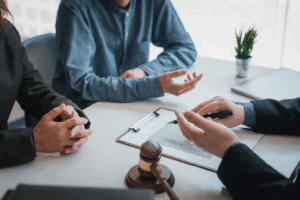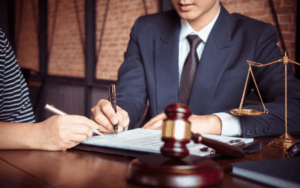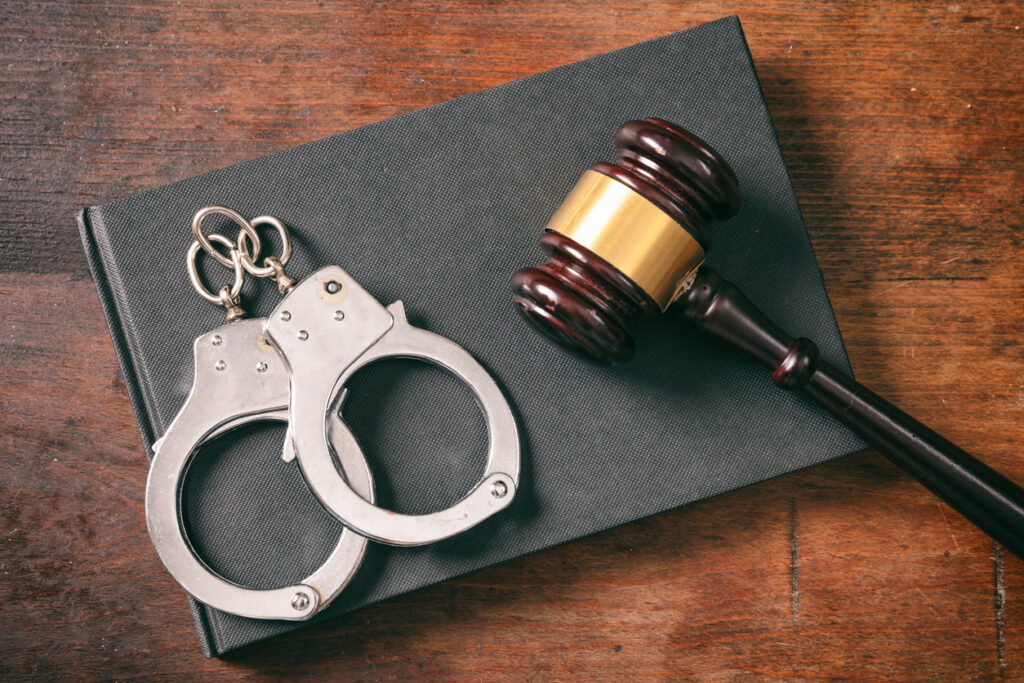Facing criminal charges can be an overwhelming and intimidating experience. If you’re in this situation, hiring a criminal defense attorney can be one of the most important steps you take. The first consultation with a criminal defense attorney is an opportunity to evaluate the lawyer’s expertise, discuss your case, and determine the best course of action moving forward. But what exactly happens during that first meeting? Understanding what to expect can help ease any anxiety you might feel and allow you to make the most out of your consultation.
Initial Impressions and Setting the Tone
When you walk into the office of a criminal defense attorney for the first time, you’ll be greeted by a professional who specializes in handling criminal cases. Attorneys usually make an effort to create a calm and supportive environment during these meetings, understanding that their clients are often facing some of the most stressful times of their lives. Whether you’re in a major city or a small town, this meeting is typically private and confidential, allowing you to discuss your case without concern.
Expect your attorney to introduce themselves, explain their role, and give you a sense of their experience and approach. Many criminal defense attorneys will begin by discussing their background and any previous cases similar to yours, giving you an idea of their qualifications and success rate. This initial interaction sets the stage for the conversation ahead.
A Thorough Review of Your Case
 The core of the first consultation revolves around your case itself. The attorney will likely ask for a detailed account of the situation, focusing on the charges you are facing, the events leading up to the arrest, and any evidence that has been presented against you. It’s important to be open and honest with your attorney during this discussion. Your lawyer’s job is to advocate for you, and they can only do so effectively if they have all the facts.
The core of the first consultation revolves around your case itself. The attorney will likely ask for a detailed account of the situation, focusing on the charges you are facing, the events leading up to the arrest, and any evidence that has been presented against you. It’s important to be open and honest with your attorney during this discussion. Your lawyer’s job is to advocate for you, and they can only do so effectively if they have all the facts.
During this part of the consultation, you may be asked to provide documents related to the case, such as arrest reports, witness statements, or any communications you’ve had with law enforcement. Your lawyer will review this information to identify any potential weaknesses in the prosecution’s case and begin to develop a defense strategy tailored to your specific circumstances.
The attorney will also ask probing questions to get a clearer picture of the case. They may want to know about the surrounding circumstances of your arrest, any prior criminal history, and any steps you’ve taken since the incident. Don’t worry if some of your answers might be uncomfortable or difficult to provide. Lawyers are bound by confidentiality agreements, so you can trust that anything you share will not be used against you.
Exploring Possible Defense Strategies
Once the details of the case have been discussed, your attorney will start to explore potential defense strategies. They will inform you about the various legal avenues available to challenge the charges, depending on the specifics of your case. Whether it’s arguing that the evidence is inadmissible, questioning the legality of the arrest, or finding flaws in the prosecution’s timeline, a good criminal defense attorney will outline the strengths and weaknesses of each possible approach.
At this stage, the attorney may give you an idea of what to expect moving forward, including how long the case might take and what the legal process will involve. Criminal cases can be complex and lengthy, especially if they go to trial, so having an understanding of the process is crucial for managing expectations.
Understanding the Legal Fees and Payment Structure
 Before the consultation ends, one of the most important topics to cover is the legal fees associated with your case. Criminal defense attorneys typically charge in one of two ways: a flat fee or an hourly rate. Flat fees are often used for less complex cases, while hourly rates may apply for more complicated matters. Some attorneys may offer a payment plan, especially if the fees are substantial.
Before the consultation ends, one of the most important topics to cover is the legal fees associated with your case. Criminal defense attorneys typically charge in one of two ways: a flat fee or an hourly rate. Flat fees are often used for less complex cases, while hourly rates may apply for more complicated matters. Some attorneys may offer a payment plan, especially if the fees are substantial.
During your first consultation, the attorney will explain their payment structure clearly so that there are no surprises down the line. This is the time to ask about any additional costs that might arise during the case, such as expert witness fees or court filing charges. Understanding the financial commitment required will help you make an informed decision about hiring the attorney.
Communication and Next Steps
Another key element of the first consultation is discussing how communication will be handled throughout the legal process. A reliable attorney will outline how you can reach them with questions or concerns and how often you can expect updates regarding the progress of your case. Some attorneys prefer to communicate by email, while others may offer phone consultations or even in-person meetings when necessary.
This is also the time to ask about the next steps in the legal process. The attorney may outline any immediate actions you need to take, such as gathering documents or attending a court hearing. They will likely explain the timeline of the case, so you have a clear understanding of what lies ahead.


 Not every criminal case ends up going to trial. In many cases, the prosecution may offer a plea deal, which allows the accused to plead guilty to a lesser charge in exchange for a reduced sentence. While plea deals can be beneficial in some circumstances, they require careful consideration and negotiation. Having a criminal defense lawyer involved early allows them to evaluate the plea deal and determine whether it is in your best interest. In many cases, lawyers can negotiate with the prosecution to secure a better deal or to ensure that the terms are fair and reasonable. Without early involvement, individuals may accept a plea deal prematurely, potentially leading to a harsher sentence than they would have received if they had consulted with a lawyer first.
Not every criminal case ends up going to trial. In many cases, the prosecution may offer a plea deal, which allows the accused to plead guilty to a lesser charge in exchange for a reduced sentence. While plea deals can be beneficial in some circumstances, they require careful consideration and negotiation. Having a criminal defense lawyer involved early allows them to evaluate the plea deal and determine whether it is in your best interest. In many cases, lawyers can negotiate with the prosecution to secure a better deal or to ensure that the terms are fair and reasonable. Without early involvement, individuals may accept a plea deal prematurely, potentially leading to a harsher sentence than they would have received if they had consulted with a lawyer first. One of the most important qualities of a successful criminal defense law firm is its expertise and experience in criminal law. Criminal defense is a specialized area of law, and handling criminal cases requires lawyers who are well-versed in its nuances. A firm with experienced attorneys has likely dealt with a wide range of cases, from minor offenses to serious criminal charges, and understands the intricacies of criminal law.
One of the most important qualities of a successful criminal defense law firm is its expertise and experience in criminal law. Criminal defense is a specialized area of law, and handling criminal cases requires lawyers who are well-versed in its nuances. A firm with experienced attorneys has likely dealt with a wide range of cases, from minor offenses to serious criminal charges, and understands the intricacies of criminal law. Effective communication is a hallmark of any successful criminal defense law firm. Criminal cases can be long and complex, often involving multiple court appearances, legal filings, and negotiations. During this process, clients need to be kept informed and involved. A law firm that values communication ensures that its clients receive regular updates and are made aware of any developments in their case.
Effective communication is a hallmark of any successful criminal defense law firm. Criminal cases can be long and complex, often involving multiple court appearances, legal filings, and negotiations. During this process, clients need to be kept informed and involved. A law firm that values communication ensures that its clients receive regular updates and are made aware of any developments in their case.